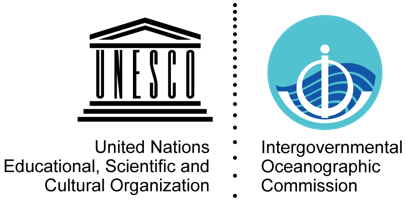The scientific expedition Tara Oceans has been travelling the world's oceans for almost three years, investigating the effects of climate change on biodiversity and marine ecosystems, with a particular focus on plankton.
It is carried out under the auspices of UNEP, in partnership with IUCN and UNESCO IOC.
 9 February 2012: Tara Oceans, a mission carried out under the auspices of the UN Environmental Programme (UNEP) in partnership with the International Union for Conservation of Nature (IUCN) and the Intergovernmental Oceanographic Commission (IOC) of the UN Educational, Scientific and Cultural Organization (UNESCO), has arrived in New York, US, to raise awareness of the impacts of climate change on oceans. The scientific expedition has been travelling the world’s oceans for almost three years, investigating the effects of climate change on biodiversity and marine ecosystems, with a particular focus on plankton.
9 February 2012: Tara Oceans, a mission carried out under the auspices of the UN Environmental Programme (UNEP) in partnership with the International Union for Conservation of Nature (IUCN) and the Intergovernmental Oceanographic Commission (IOC) of the UN Educational, Scientific and Cultural Organization (UNESCO), has arrived in New York, US, to raise awareness of the impacts of climate change on oceans. The scientific expedition has been travelling the world’s oceans for almost three years, investigating the effects of climate change on biodiversity and marine ecosystems, with a particular focus on plankton.
Andrew Hudson, the Coordinator of UN Oceans, underscored the role of the Tara mission in facilitating communication among scientists, the public and policy makers. He also emphasized its importance in awareness raising in the lead up to the UN Sustainable Development Conference (Rio+20) in June 2012, where Tara scientists will be present to make the case for ocean sustainability. According to the UN, Tara Oceans has been supported by artists, journalists and French fashion designer Agnes b.
Speaking at a press conference organized by the French Mission at the UN in New York, Eric Karsenti, the expedition’s scientific director, explained that Tara Oceans aims to understand how the network of plankton in the oceans is organized in order to predict how climate change will affect these organisms, noting that they provide 30% of the world’s oxygen. He outlined the threats to planktons, including overfishing, oil drilling and pollution, and called for the development of renewable energy sources as well as an international ocean-monitoring system and sustainable policies covering the high seas.
Philippe Kridelka, Director of the UNESCO New York office, underscored that ocean acidity had increased by 30% since the Industrial Revolution and that sea-level rise is already affecting small island developing States (SIDS). [UN Press Release] [UN Press Conference on the Tara Expedition]